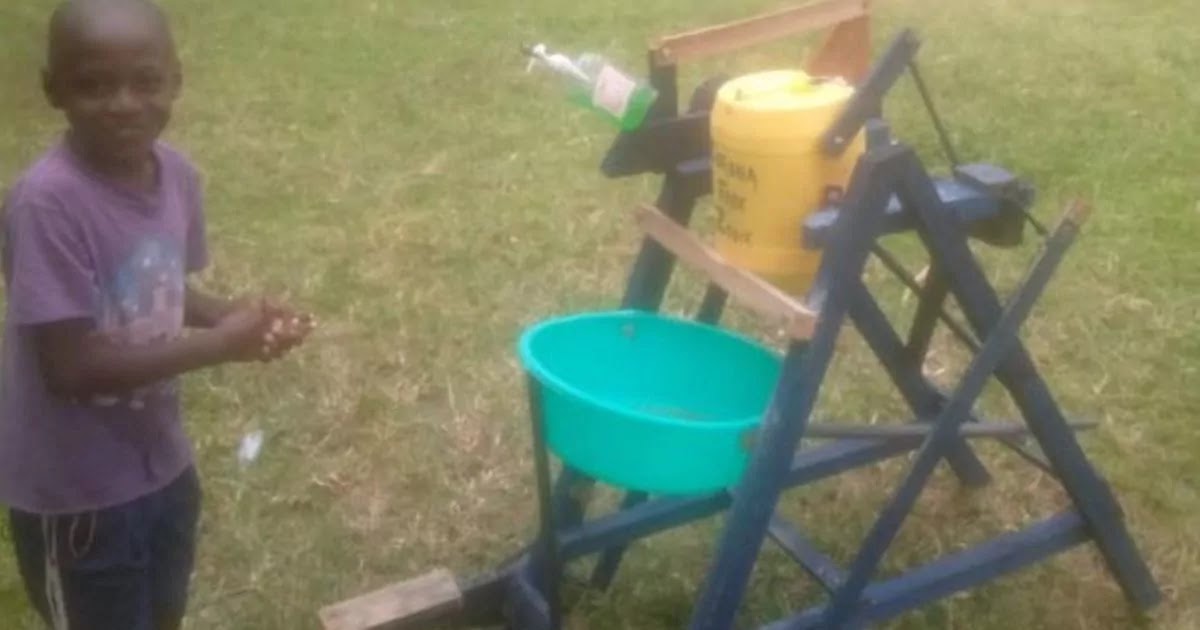
Handwashing has become in ever bigger part of our day-to-day lives since the pandemic began. It helps stop the spread of bacteria and viruses, including coronavirus. Coronavirus can spread from contact with infected surfaces or objects. For example, a person can get CoVid-19 by touching an object or a surface that the virus is on, and then touching their own eyes, mouth or nose. As a prevention measure, apart from handwashing, we have also seen a huge increase in the use of hand sanitiser when soap and water is not available.
One 9-year-old boy though has built an ingenious device that makes handwashing even easier and safer. Stephen Wamukota, who lives in a village in Kenya, created the machine using basic materials his father had given to him.
The device is constructed using a foot pedal that dispenses soap and then water. This is particularly useful as other soap and antibacterial dispensers require people to touch the bottles and could themselves act as a transmitter. The foot pedals stop all of this danger while still providing the cleaning required.
Stephen's father in an interview with the BBC, who picked up on the story, said:
"I had bought some pieces of wood to make a window frame, but I when I came back home after work one day, I found that Stephen had made the machine. The concept was his, and I helped tighten the machine. I'm very proud."
Stephen was inspired to make the machine after learning on the news that handwashing was a key way to save lives, and has now even constructed a second one just like the first. He hopes that other villages across Kenya will also copy the prototypes and use them to help protect their residents.
Not only has he received praise online, but the Kenyan president has now awarded him the Presidential Order of Service Uzalendo (Patriotic) Award, in acknowledgement of his service to the people of Kenya. Stephen's father now hopes that he may receive a scholarship to university when he is old enough to attend, as he wishes to become an engineer.
Kenya's confirmed coronavirus cases have now risen to 22,053 out of which, 369 patients have died.












COMMENTS